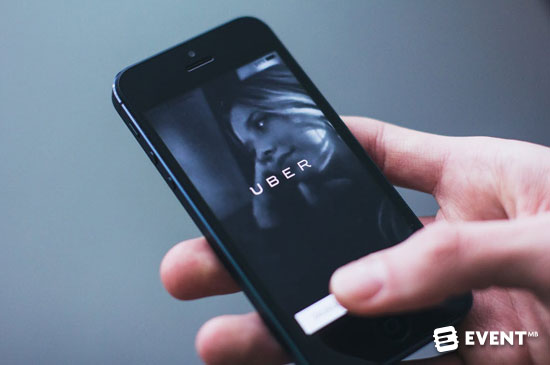Skift Take
News struck this morning about the London transport authority banning Uber. While the use of sharing economy services is still controversial, attendees won’t be happy for sure. We have proof.
The news is out today and it is disruptive for sharing economy services, a favourite choice for attendees at large events.
##abovethefold##
What Happened?
TfL (Transport for London) says that Uber “demonstrate a lack of corporate responsibility in relation to a number of issues which have potential public safety and security implications”.
Uber now has time to appeal and the ban won’t go into effect immediately. It is likely it will drag on for a while and Uber has successfully overruled such motions in the past. Yet, it is quite disrupting news if you are planning events in London with a large number of attendees.
Why Does Uber Ban Impact Your Event?
Price. London has an incredible transport network. You can travel in a myriad of forms. Black cabs (the taxi) can be quite an expensive option. There are cheaper alternatives called ‘minicabs’ but usually this is an option mostly locals or Brits use. Uber is a cheaper alternative to the above.
Accessibility. If you are from abroad and travelling to London, you will likely have Uber already installed on your phone. There is a feeling of confidence in using the same system anywhere in the world. You know how it works, you know how to get it. It’s like going to Starbucks or McDonald’s, you know what to expect.
Payment. Payment processing can be a pain when you are travelling to a foreign destination. With Uber, you know your fare is going to go to your credit card, or even better, straight to your finance department, if you have a business account set up. Hence why Uber has become a favourite among business travellers.
Capacity. London is an incredibly large city with a huge number of taxis, yet Uber has a centralized way to deal with splurges in demand, rewarding the drivers and charging more to the user. This is probably the one item that impacts the most events, as taxi companies do not seem to have a strategic approach to demand.
Frustration
You can already see some of the reasons why such bans don’t go down well with users by checking the worldwide trending topic on Twitter #Uber.
Here are some specific tweets though in relation to the lack of Uber at large events, specifically SXSW in Austin. Of course we need to compare apples with apples and Austin is no London in terms of transportation offer. Attendees can use the Tube, which is literally everywhere in the city. Also Austin did not ban Uber and Lyft, they decided not to operate because of the strict background check policy of the city.
Yet, let’s look at some results:
Uber and Lyft are gone from Austin, and Fasten & Ride Austin has completely collapsed now because of #SXSW
— Alexander Savin (@alexsavinme) March 12, 2017
https://twitter.com/deadprogrammer/status/841368722195533824
https://twitter.com/sssssparkers/status/841083082170068994
Uber and Lyft are now back in the city, but our point is in relation to disservice during large events. Specially those with an audience prone to use this type of technology (young business people, tech event attendees, younger demographics).
In Conclusion
While it is difficult to take a stance on whether the ban is fair or not, who is right and who is wrong, banning sharing economy services brings an enormous amount of disruption to the new balance of modern cities.
Demand management at large events is something that local companies often seem to miss and, as a result, attendees suffer a negative experience in their attendance. Whenever your event is impacted, you have to take action to level off the disruption.
What can you do to counteract the Uber ban? What other services can you suggest to your annoyed attendees? Think about these questions. Just the fact you thought about it, will make attendees feel better about the disservice and not link any transportation frustrations to the event.





